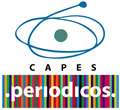Sobre a Revista
O Periódico Eletrônico Fórum Ambiental da Alta Paulista é dedicada à disseminação de trabalhos científicos originados de pesquisas empíricas, experimentais ou conceituais, decorrentes de estudos em nível de mestrado, doutorado ou equivalentes.
Qualis Periódico A3 – divulgado em 12/01/2026, na Avaliação Quadrienal 2021-2024
Atenção: A partir de 2020, os artigos serão publicados em inglês e português.
Submissões de artigos de autoria ou coautoria de alunos de graduação ou pós-graduação não serão aceitas. Todos os autores devem estar vinculados a programas de pós-graduação stricto sensu ou possuir, no mínimo, o título de mestre.
Foco e Escopo
O Periódico Eletrônico Fórum Ambiental da Alta Paulista é dedicado à divulgação de pesquisas científicas e à promoção de discussões acadêmicas e profissionais em uma ampla gama de temas interdisciplinares que abrangem cidade, geografia, meio ambiente e sustentabilidade.
No contexto urbano, a revista aborda estudos sobre a ambiência e resiliência das cidades, explorando como elas se adaptam às mudanças ambientais e fortalecem suas estruturas e comunidades. Além disso, investiga o papel da arquitetura na formação urbana e na preservação do patrimônio cultural, bem como a integração de tecnologias nas cidades para promover a sustentabilidade e melhorar a qualidade de vida urbana. A gestão e preservação do patrimônio arquitetônico, cultural e paisagístico, juntamente com a relação entre planejamento urbano, ecologia e preservação das paisagens naturais, também são temas de destaque.
Na área de geografia, o periódico explora o planejamento e a gestão dos recursos hídricos, com enfoque na preservação das bacias hidrográficas, bem como estudos de biogeografia que mapeiam e analisam a distribuição de espécies e ecossistemas. Reflete sobre os fundamentos e métodos do ensino de geografia, além de examinar as características físicas da Terra através de estudos de geologia e geomorfologia. Análises da geografia urbana e populacional, o uso de geotecnologias aplicadas à análise ambiental, e estudos de climatologia com enfoque nas mudanças climáticas também são temas centrais, juntamente com reflexões sobre o pensamento geográfico e a produção do espaço geográfico.
No âmbito do meio ambiente e sustentabilidade, o periódico destaca a importância da conservação da biodiversidade e das unidades de conservação, analisando também o impacto do agronegócio e das práticas agrícolas no ambiente rural, com o objetivo de encontrar soluções sustentáveis. A educação ambiental é explorada como ferramenta para ampliar o entendimento e a conscientização sobre as questões ambientais, enquanto as novas tecnologias sustentáveis são investigadas por seu potencial de contribuição à sustentabilidade ambiental. Estudos que examinam a interface entre saúde pública, saneamento e qualidade ambiental, assim como pesquisas sobre o turismo como vetor de desenvolvimento econômico e social em áreas de potencial natural e cultural, complementam o escopo abrangente do periódico.
Processo de Avaliação pelos Pares: Todos os artigos submetidos passam por um rigoroso processo de avaliação por pares, onde são revisados por dois pareceristas. Em caso de divergência, um terceiro avaliador será acionado, garantindo a qualidade e a imparcialidade na publicação.
Periodicidade: A publicação tem periodicidade bimestral.
Licença: Creative Commons Attribution 4.0 International License.
Política de Acesso Livre: A revista promove o acesso livre e imediato ao seu conteúdo, fundamentando-se no princípio de que a disseminação gratuita do conhecimento científico favorece a democratização e o avanço global do saber.












